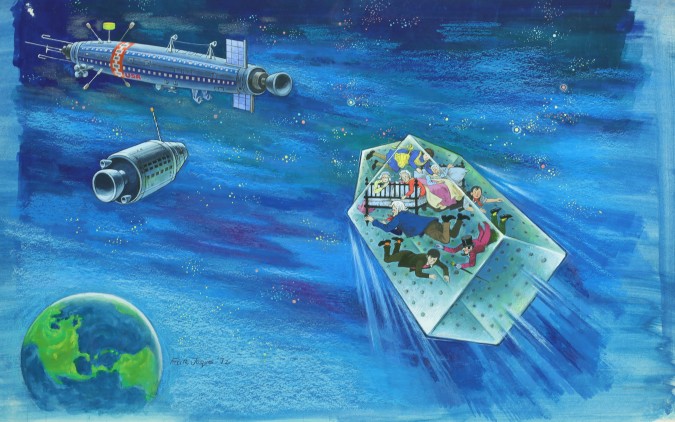When I was a child and I tried to envisage the future, my mind was full of social and technical achievements. I saw driverless cars; phones on which you could see the person as well as talk to them; and lifts that went in all directions rather than strictly up and down. I also dreamed of equal rights and pay for women in a world where women's sport was taken as seriously as the men's equivalent; where women had the right to drive cars and not be accused of witchcraft and beaten to death; where a woman had the right to decide what she did and did not want to do with her body and was valued for more than her ability to reproduce. Clearly that last one is a bit too far-fetched.
But the new incline lifts on London's Elizabeth Line run proudly parallel to the escalators, rather than vertically. Apparently this is a cost-effective exercise with additional ecological benefits. The diagonal design is cheaper to build as it 'negates the need for the costly excavation of a lift shaft and will reduce power consumption by nearly 50 per cent'.
I'm sure that some nerdy lift electrician (now, where can I find me one of them?) could explain all the practicalities to me if I really cared, but I just think they look cool and can't wait for them to do loop the loops and fly off into space. That's totally possible, right?
 |
| Original artwork for Charlie and the Great Glass Elevator |
Incidentally, the new Elizabeth Line will slightly redress the gender imbalance of nomenclature. There are currently only three stations named after women: Seven Sisters; Victoria and Lancaster Gate - this latter being so-called in honour of Queen Victoria in her guise as the Duke of Lancaster, as the monarch is styled, regardless of gender.
Aware of this injustice, Londoners Reni Endo-Lodge and Emma Watson created a City of Women tube map for International Women's Day this year. The map is available to buy and there's also an interactive version on-line where you can look up more details about the women featured.
"The usual names of London's 272 Underground stations are switched out for pioneering female figures across every genre - the arts, sport, politics, activism... the list goes on. Among them are household names like Audrey Hepburn, Adele, Mary Seacole, Madhur Jaffrey, Michaela Coel, Boudica and the Ford sewing machinists, as featured in the film Made in Dagenham. Even Holloway - the erstwhile women's prison - gets a namecheck."
As for my childhood vision of the future? Well, I guess three out of four ain't bad.
:quality(70)/cloudfront-eu-central-1.images.arcpublishing.com/thenational/J4CZMLR4WJBETAZNNLNJMV6WHU.jpg)

No comments:
Post a Comment